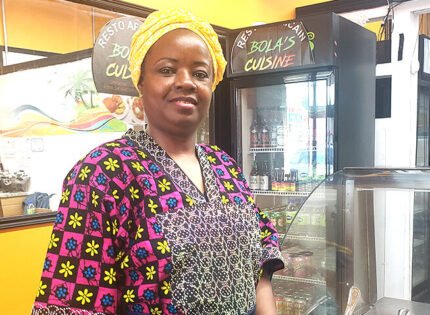
Africa’s TURN TO EAT? Will new league bring economic benefits
For long, the USA has been bastion of popular culture. And sports has been one of those pillars upon which that concept was built.
In the recently-concluded National Basketball Association (NBA) finals, history was made when a little known Canadian franchise; the Toronto Raptors copped the title.
That victory reinforced the NBA’s desire to set its sights further afield… much further indeed,
In February 2019, the Basketball Africa League, a new collaboration between the NBA and the sport’s global governing body FIBA, was launched.
The new league will feature 12 teams from several African countries including Angola, Egypt, Kenya, Morocco, Nigeria, Rwanda, Senegal, South Africa and Tunisia.
And President Barack Obama is among those who are expected to have direct involvement with the its operations.
The NBA announced its plan along with International Basketball Federation, and will conduct qualification tournaments later this year. While there are several basketball teams across Africa, a pro league will unify them under one umbrella and provide resources and visibility.
When it comes to the NBA, Africans are well represented looking at the line-up of the winning raptors team, Serge Ibaka (Congo), Pascal Siakam (Cameroon) OG Anuoby (Nigeria) and the Toronto’s President, Masai Ujiri (Nigeria) are just some of the examples of the quality of players the continent has produced.
NBA’s focus on African talent will help to foster a strong connection with fans. Thirteen African-born players were on NBA rosters at the start of 2018-19 season, while 10 players from the NBA’s Basketball Without Borders Africa program have been drafted into the NBA since 2003.
The Basketball Africa League (BAL) will perhaps serve as a chance for Africa to have a full seat at the table. In the world cup 2018, the France team took home the cup. But around the continent and beyond there was talk of how the victory celebrated in France was made in Africa and the French government frowned at their players being called African.
“They are French,” they maintained.
This validates the fact that, the African continent is awash with talent. And if the BAL proves to be the right machine the world will sit and watch Africa shine within the motherland.
It goes without saying, basketball being played professionally in Africa will definitely open up doors for economic growth and increase in employment rate. Already the league has an office in South Africa, has helped create 87 learn-and-play facilities in seven African nations, and 13 players who were born in Africa on opening-night NBA rosters this season. The league also built an academy in Senegal.
All these sparks are bound to fuel the African glow.














